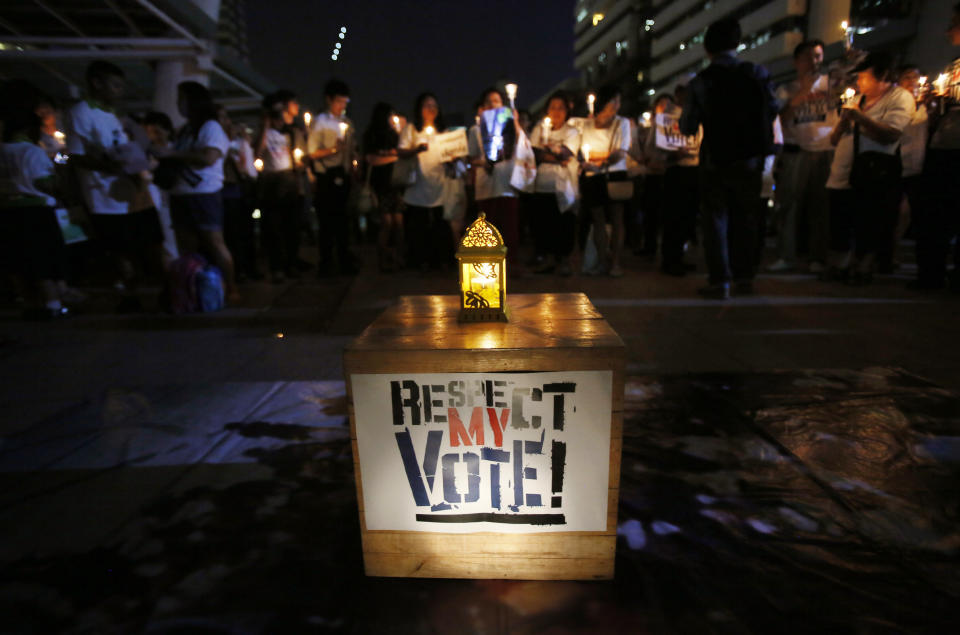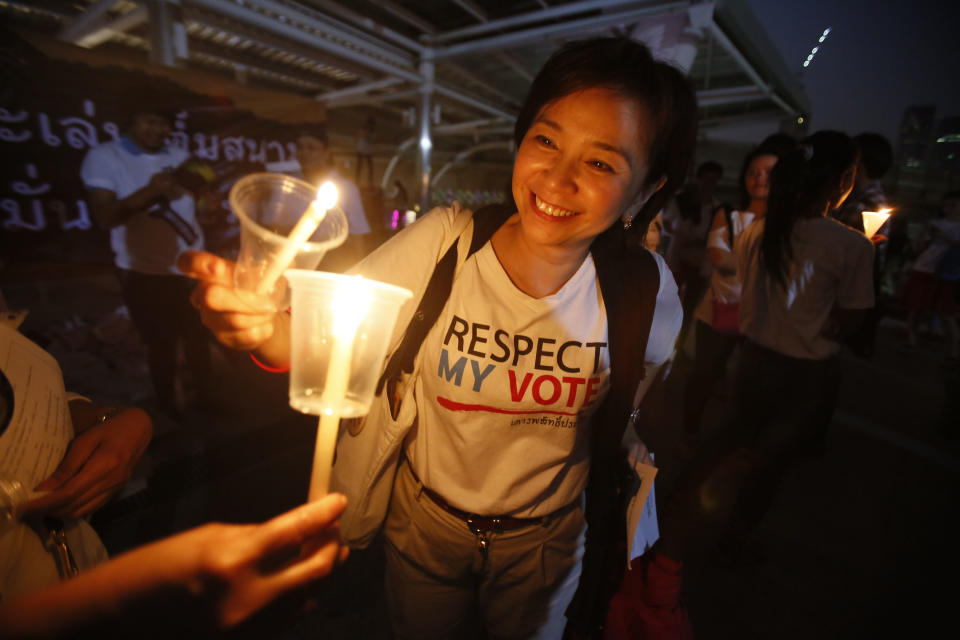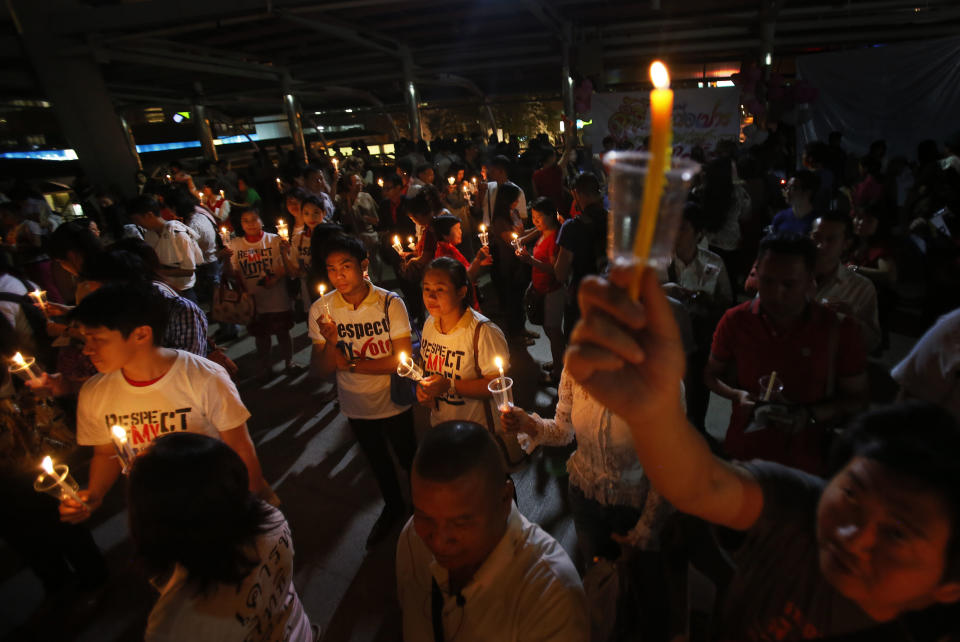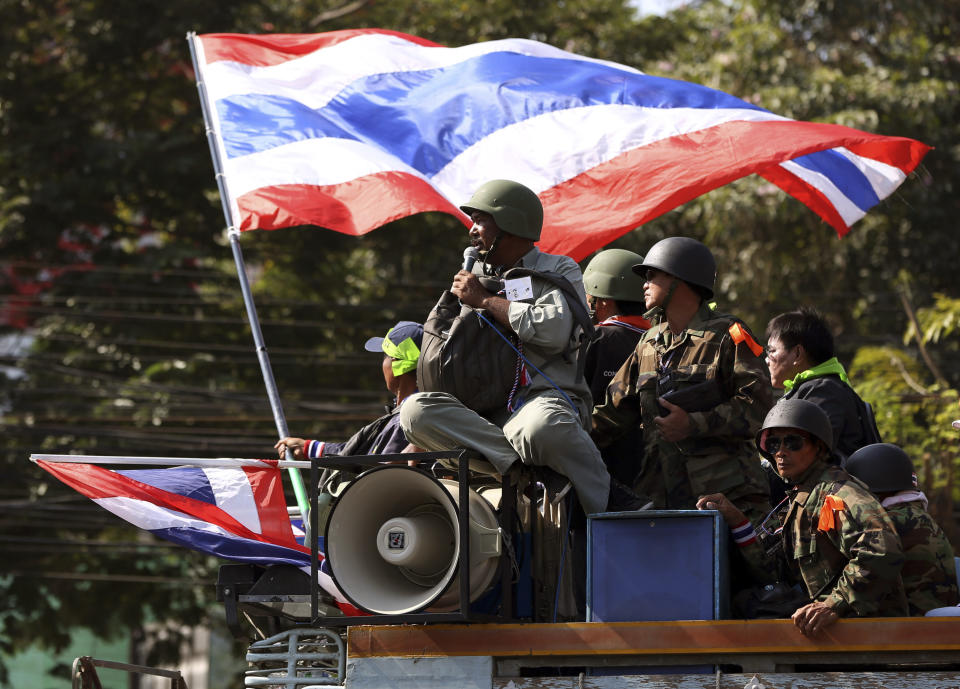Questions, answers about futile polls in Thailand
BANGKOK (AP) — Thailand's general election is on Sunday, but the main opposition Democrat Party is boycotting it and protesters are seeking to scuttle the vote by blocking access to polling stations in Bangkok and several other places. Even though the election is expected to proceed smoothly in most of the country, it is unlikely to result in the formation of a new government.
Here are some questions and answers about the polls:
Q: Why is the election being held?
A: Prime Minister Yingluck Shinawatra called the early polls, hoping to reaffirm her mandate after facing strident street protests that threatened to result in prolonged violence. But anti-government forces, who have been demonstrating since November, want an unelected interim government to hold office for up to two years to implement political and electoral reforms to fight corruption and money politics.
Q: What happens if elections are disrupted and produce no clear resolution?
A: A new parliament can convene only if 95 percent of the 500 seats in the House of Representatives are successfully elected. Failure to complete balloting in every constituency may prevent parliament from reaching the quorum needed for the formation of a new government. The legal deadline for forming a government is six months from election day. A power vacuum might tempt the military to intervene, as it did in 2006.
Q: When will final official results come in?
A: Results cannot be announced until all districts have voted. Already, new polls have been scheduled for several districts where advance voting, held last Sunday, was thwarted and for districts where candidates were kept from registering. More such re-votes may have to be held after Sunday's vote, a process that will take months.
Q: Is it illegal to block voting?
A: Yes, but police made no move to arrest protesters who stopped people from voting in the advance polls, apparently to avoid violent confrontations. Obstructing a person from voting is punishable by a jail term of one to five years, a fine and a forfeiture of voting rights for five years. Boycotts are not illegal but politicians lose the right to run in the following election.
Q: What are the chances of violence on Sunday?
A: There are real fears. During the advance voting, protesters chained the gates to polling stations and physically prevented voters from entering. Crowds also intimidated officials overseeing the voting into shutting down. This happened despite protest leaders saying voters would not be blocked, a promise they made again for this Sunday's vote. But this time a lot more people will come out wanting to vote, raising the possibility of violence.
Q: What are the post-poll scenarios?
A: Even if the electoral hurdles can be cleared, several cases are pending against the ruling party in the courts and agencies that perform oversight functions. The possibility of being unseated by a so-called "judicial coup" is widely considered the biggest threat to Yingluck. Also, courts can nullify the election or punish contenders for irregularities. Thai courts nullified a 2006 election on narrow technical grounds, and used accusations of cheating to twice dissolve parties linked to Yingluck's billionaire brother, former Prime Minister Thaksin Shinawatra.
Q: Why do the protesters oppose the election?
A: They claim that Yingluck is perpetuating a system of "parliamentary dictatorship" by using her family's wealth and economically irresponsible populist policies to manipulate the electoral system. Her support comes mainly from the country's rural majority. They say the system was started by Thaksin, who was ousted in a 2006 coup after being accused of corruption and abuse of power, and now lives in exile. They argue that poorer rural voters are not educated well enough to vote responsibly, and acknowledge they will never be able to win a popular vote. Parties linked to Thaksin, and later Yingluck, have won every election since 2001.
Q: What are the underlying reasons for the hatred against Thaksin and Yingluck?
A: Some believe the anti-Thaksin movement has been manipulated by elements of Thailand's traditional ruling class — including the military and circles around the royal palace — who are fearful of losing power and influence as the masses exercise their democratic power. The other side contends that Thaksin high-handedly ran roughshod over the prevailing rules of Thai society and politics, subverting nascent democratic institutions to enrich himself.
Q: What is the government's position?
A: It proposed that all contending parties commit ahead of the polls to start a reform process after the election, but its opponents insist that reforms occur before the balloting.
Q: What happens if Yingluck gives in to the opposition demands?
A: Even if she is dislodged, her supporters are widely expected to respond with their own protests, perpetuating the cycle of violence.








